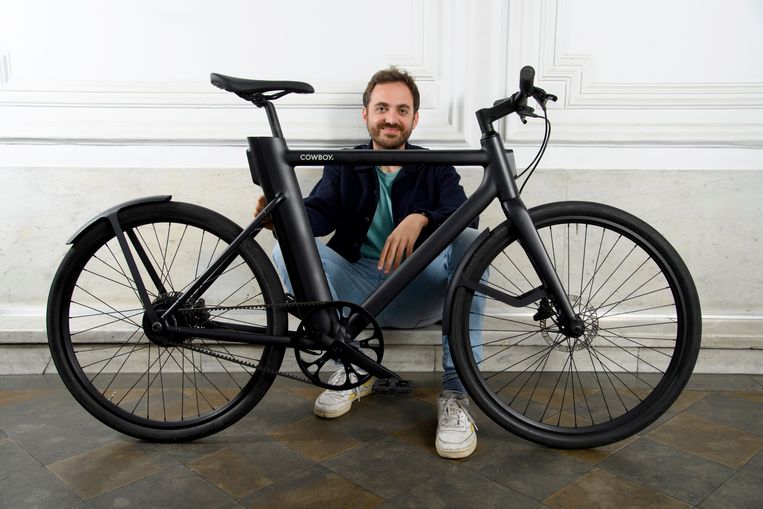Electric bicycles are on the way to making ordinary bicycles obsolete.
That’s the confident view of a man who not only is in business to sell e-bikes to the world, but who also managed to raise €23 million in capital this month from other people who think he might just do it.
Adrian Roose is 32 years old, from Brussels, and the co-founder of the Cowboy brand of electric bikes. He is also one of the few people to have reaped some benefit from the Covid-19 pandemic.
Roose and his two partners, Karim Slaoui and Tanguy Goretti, set out at the beginning of the year to raise new capital to develop their business, which included an ambitious plan to spread out into the Netherlands.
Then came Covid-19, and the market for e-bikes took off.
Cowboy sells a stripped-down electric city bike, with no gears, no mudflaps and no bell. The company has a store in Brussels, and sells via Decathlon and Fnac, but otherwise its sales are made online.
Cowboy sells to Germany, France, Italy, Austria and Spain as well as Belgium and the Netherlands. That expansion has been carried out with the help of a first round of capital worth €10 million raised in 2018.
At the start of this year a second round raised a modest €4.5 million in crowdfunding, with some 3,00o people taking part.
But the latest round has catapulted Cowboy into the upper atmosphere, where it is now a serious competitor for VanMoof, which leads the market for e-bikes in the Netherlands, and by extension in Cowboy’s other markets.
And the new capital is not all about money. Among those contributing are the Agnelli family of Italy, best known as the family behind the Fiat brand.
Concretely, the money will go towards employing 30 new employees to join the existing team of 65. The company also plans to extend its European network of test rides – where potential customers can try out the bikes before buying – and maintenance support.
“I was afraid the deal wouldn't go through,” said Roose. “The potential investors asked lots of questions. At the beginning of the crisis, we were far from certain that the talks would turn out to be positive. There was even a break in March and April.”
But the crisis was not entirely an ill wind.
“The crisis led to a boom in the sale of electric bicycles,” Roose told De Tijd. “We initially feared that sales would drop because we had stopped our marketing efforts. Nevertheless, sales have tripled.”
Alan Hope
The Brussels Times

